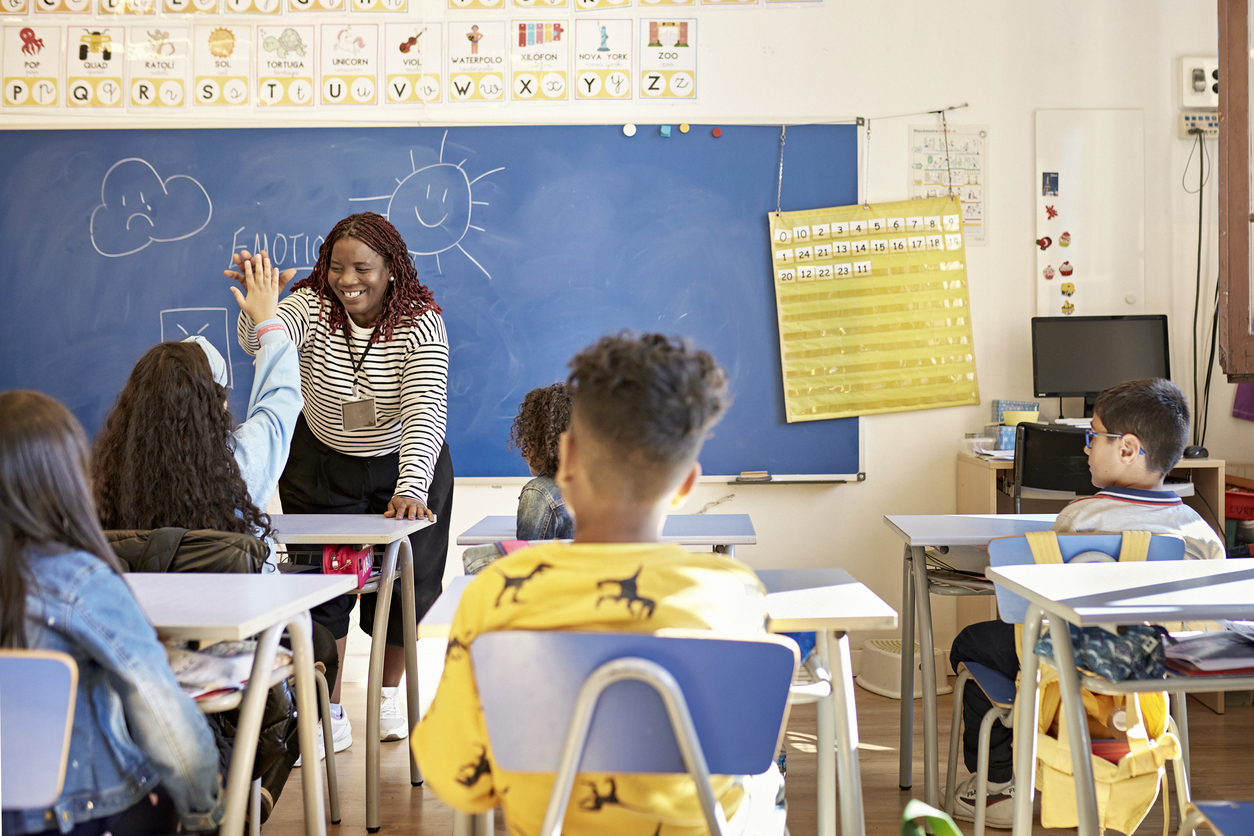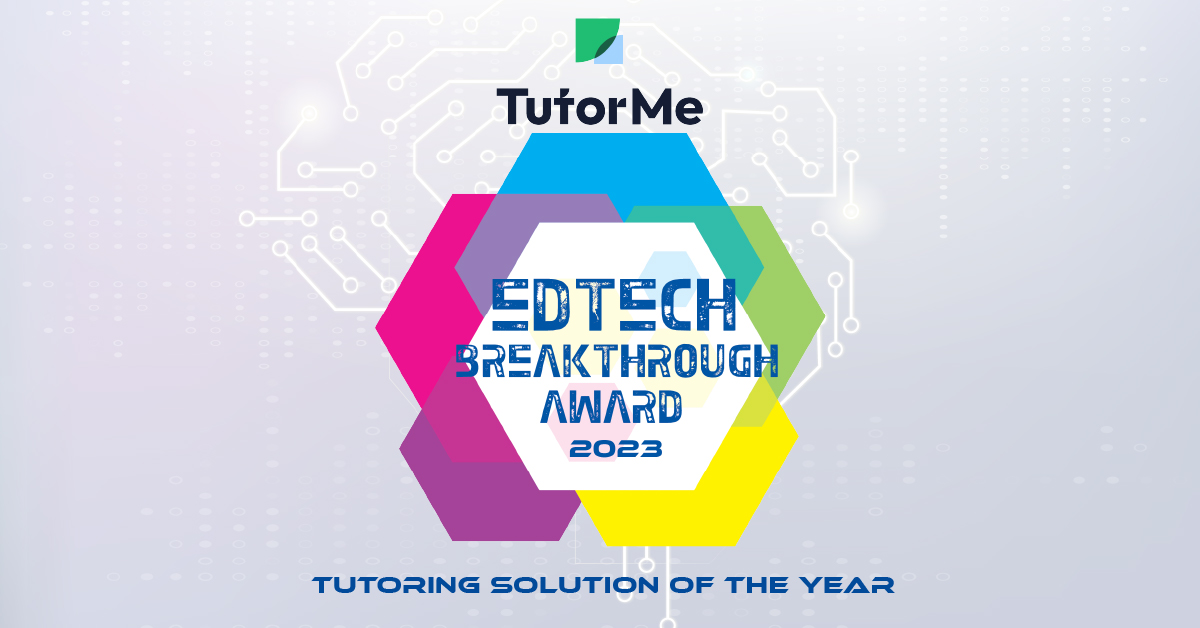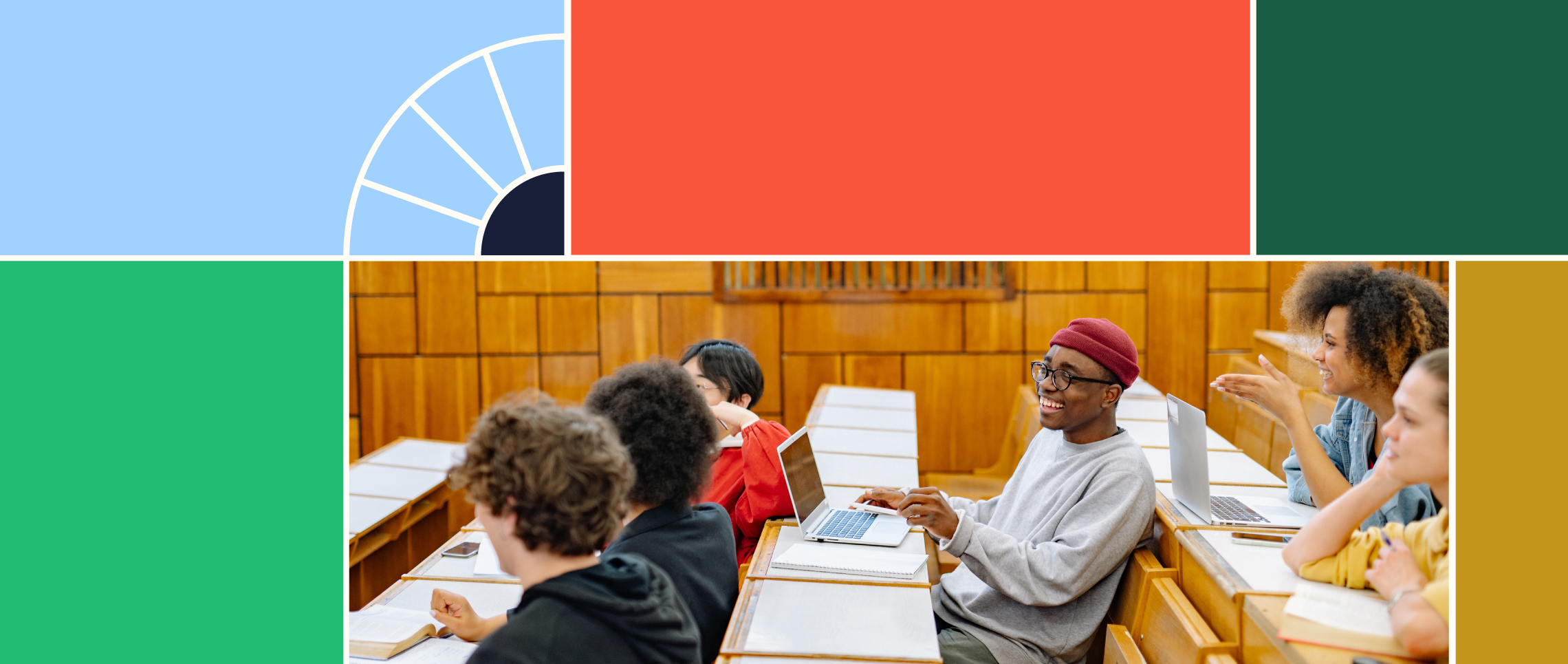Teacher vs. tutor: why most kids need both
Teachers and tutors, while often viewed interchangeably, support the academic success of students in their own ways. This article explains the difference between the two, why students need both, and how teachers and tutors are similar and different.
Some people use the terms "teaching" and "tutoring" interchangeably. This can be confusing—especially if you're an online tutor!
The main difference between teaching and tutoring is in the number of students. Teachers impart their knowledge and skills to a classroom of students, while tutors help students learn in a personalized, small group or one-on-one session.
In this article, we'll explore what a teacher is, what a tutor is, why students need each type, and the similarities and differences between teachers and tutors.
What is a teacher, and how do they benefit student learning?
A teacher is an educator who imparts knowledge to a classroom of students. Teaching typically happens in a classroom at a school, but online classroom teaching is also possible.
Teachers need to have specific qualifications, such as a teaching degree. They direct their lessons toward a classroom of students, which means they try to teach at a level of learning that best suits the majority of students.
Teachers can make a sizable impact on many students. Students typically have the same teacher throughout the year or semester, making it likely that they'll develop a relationship with the teacher.
A teacher leads the class through a curriculum from beginning to end. The teacher provides structure to student learning, gives students the opportunity to grow and develop new skills based on previously learned skills, and can make references to lessons they have already taught.
Teachers also have the opportunity (and obligation) to grade students on their schoolwork and track the grades to keep teachers, students, and parents abreast of students' academic progress.
What is a tutor, and how do they benefit student learning?
A tutor is an educator who offers learning assistance to individual students outside the classroom experience. Tutors often work with students privately, either at the student's home, in a library, or through an online tutoring platform. They usually tutor the student in one particular academic area, such as math or essay-writing.
Tutors are able to differentiate their support to address the student's needs, so the learning should always be at the student's level. Tutoring sessions afford struggling students the time they need to learn at their own pace.
Through tutoring, students who struggle with certain concepts or skills can spend extra time honing them to keep up with their classmates at school and reach their personal academic goals.
Struggling students may need extra encouragement, which tutors have the opportunity to provide during their tutoring sessions. This encouragement can come in the form of congratulations when students reach personal milestones or an inspiring outlook that will change the way a student views their academic achievements.
How are tutors and teachers similar?
Tutors and teachers are both integral to student learning. Their ultimate goal is to help students expand their knowledge of subject matter and master certain concepts so they can apply this knowledge in future coursework, careers, and life in general.
Both tutors and teachers have a high level of expertise in the subject or subjects they specialize in. It's their job to share that knowledge and skills with their students in ways that make learning accessible and enjoyable.
Another similarity is that tutors and teachers usually receive some compensation for their endeavors, although some help students learn on a voluntary basis.
How are tutors and teachers different?
While both tutors and teachers educate students, they serve different purposes in their students' academic journeys.
A teacher may be the primary educator, guiding students through a broad spectrum of knowledge. A tutor provides students with academic support in a specific subject area to help them successfully master skills and concepts that they didn't understand in the classroom setting.
Teachers often employ more rules and structure in their teaching approach. This is because there may be 20 to 30 students in the classroom, and teachers must keep them focused and disciplined throughout the day. A tutor has room to be more flexible. Tutors can tailor the lesson to the individual student, providing guidance in a way that best suits the student's learning style.
In a classroom setting, teachers can encourage student collaboration that allows students to interact and learn from each other. In a tutoring session, the student collaborates with the tutor, which is a different dynamic, but also very valuable.
Teachers need to follow the time limits of the classes and schools. They usually teach between 8 in the morning and 4 in the afternoon from Monday through Friday. Tutors can work all hours. Students can reach out to online tutors any time, night or day.
Tutors don't spend as much time with students as teachers do, but their ability to personalize each lesson has the potential to make each minute of learning count more.
Although both teachers and tutors have a high level of knowledge and specialization in what they teach, tutors can be more specialized than teachers. Tutors have the ability to focus on one specific subject area or even one particular concept with students, whereas teachers need to broaden their approach to accommodate multiple learners and a set curriculum throughout the semester.
On a practical level, teachers typically earn a salary for their work. Tutors are usually paid for the amount of time they tutor. Teachers can expect to work a certain amount of days and hours, whereas tutors have the flexibility to make themselves available whenever they have the time or desire to tutor.
Students need both teachers and tutors to thrive
Both teachers and tutors play essential roles in student learning. Students need them both to achieve deeper learning and to meet their personal academic goals.
Teachers may play the more significant role, setting up a comprehensive learning foundation for students, while tutors help individual students work through the details, learn the concepts that are tripping them up, and achieve on a more personal level.
Effective tutoring can help students be more successful in the classroom, making it possible for the teacher to be more effective, too.
Are you looking to supplement your student support ecosystem with a proven intervention that positively impacts learning outcomes? Learn more about partnering with us to empower your students with high-impact online tutoring.









